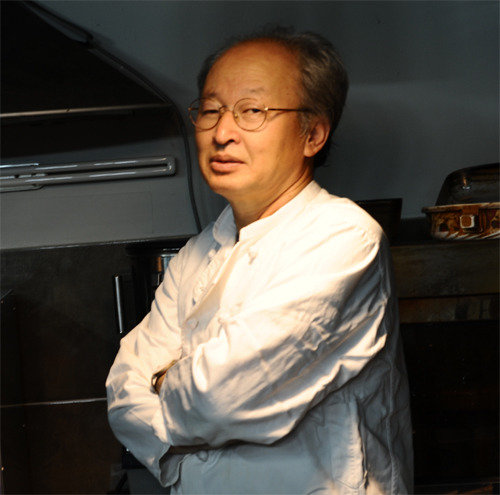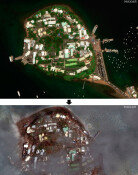Why do you add salt when boiling eggs?
Why do you add salt when boiling eggs?
Posted March. 23, 2017 07:12,
Updated March. 23, 2017 07:19

“If you boil an egg in tap water, the concentration of fluids inside and outside of the egg will differ as water will enter the eggshell due to osmotic pressure,” said Dr. Lee. "The volume of the egg will increase along with rising temperature of water, leading to a breakdown of the eggshell. For extra benefits, egg white will be seasoned with salt.
The newly published book of Dr. Lee is a collection of his lectures about “molecular cooking” classes since 2013. At a quick glance at the book, it seems that Dr. Lee tries to add some scientific trivia about cooking as cooking is in fashion in Korea today. However, after a careful review, the book is filled with more interesting topics about cooking mechanisms that deserve actual application in a kitchen.
Why does ginger combine well with fish? Why do we have to fry different vegetables separately? Dr. Lee elaborates common cooking tips, which are already widely known, but less explained, with scientific explanations. After reading Dr. Lee’s book, readers will be motivated to put on an apron. Dr. Lee also shares his experiences in the kitchen after he opened a restaurant “Bilbao” in Jeonju, North Jeolla Province, with his wife six years ago.
“If you add pineapple and kiwi when marinating meat, bromelain and actinidin, which are enzymes breaking down protein, will be released and tenderize meat. The distinctive odor of ginger will be perceived by a brain earlier than fishy smell made by amines," he said. "Spices will not eliminate odor of food ingredients, and instead, they control sensory reactions by a brain. Practically speaking, when you eat, food is actually perceived through sensors connected to a brain.”
For Dr. Lee, cooking incorporates science. His interest in cooking began growing while he was studying in France when he was 26 years old. For 10 years, he exposed himself to the foreign culinary culture in France.
I left home when I turned 20. After living alone, I realized the excitement from creating something new while cooking," Dr. Lee said. "During my stay in France, I saw many people living for cooking and eating. I found a key for the pursuit of happiness in my life in France.”
Dr. Lee has only one table in his restaurant and receives only three reservations a day. He cannot serve more food if more people come as he only prepares ingredients for food for the reserved people. He shops in the afternoon, cooks and serves food for his customers. There is no freezer for long-term storage in his restaurant.
"Once you heat food ingredients, composition of them changes due to chemical and physical reactions. They will taste different after cooling down. For example, making a large amount of sauce and storing it in a cooler is against the basic principle of keeping flavors from a scientific perspective," he said. "Obviously, I do not talk about these things during the meal. There is no definite answer when it comes to flavors. Too many critiques on the dining table will not be welcomed as it interrupts enjoying a happy meal time.”
Taek Kyoon Sohn sohn@donga.com







